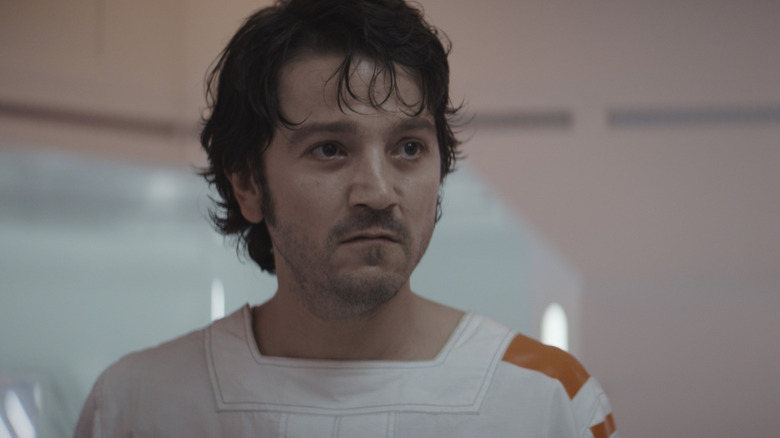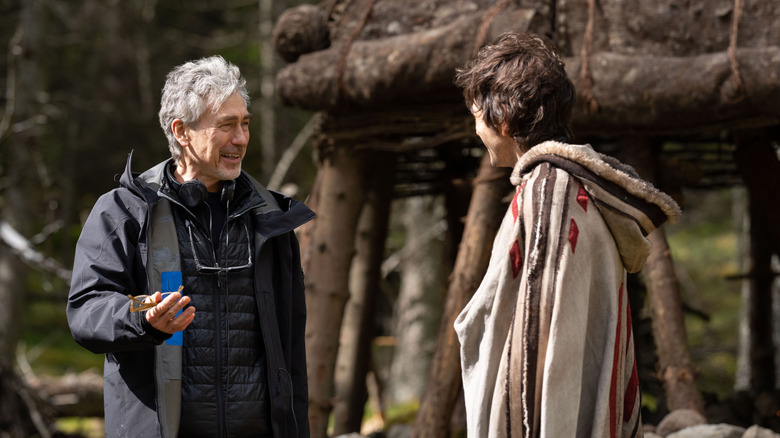
Consider this a rare anti-spoiler warning, meaning the below quotes are general enough that anyone can feel free to keep reading, even if you haven't watched the season finale of "Andor" just yet.
What makes a hero? Is it the disposable soldiers sent to the front line, the shadowy spies and double agents who do their dirty work where nobody can see them, or the politicians quietly providing the funding for rebellion while attempting to work within the rules of the system?
To this point, "Star Wars" has rarely interrogated this complicated concept, at least not beyond the most surface-level consideration. That makes perfect sense, of course, given that George Lucas created this franchise with children in mind and never really had the time or desire to devote an entire season worth of storytelling to more complex and nuanced topics. That approach eventually changed in a big way, first with the release of "Rogue One: A Star Wars Story" in 2016 and once again with its prequel/spin-off series, "Andor.
The Tony Gilroy-created show has dived headfirst into a corner of the "Star Wars" universe that we've never seen before, dragging these flawed characters into a neo-noir world with brothels, gruesome torture, and revolutionary-minded politics that would seem to make this a better fit for "The Americans" than a galaxy far, far away. But to hear Gilroy tell it, that was entirely the point behind this series. By depicting very different kinds of heroes, the filmmaker revealed in an exclusive interview with /Film that he meant for "Andor" to serve as the "gravel" upon which the rest of the franchise could be built.
Read on for all the details!
'That's True Heroism In A Way, Isn't It?'

It's not every day that an IP-based series comes around that has most in agreement over its very high level of quality -- not just for the franchise it resides in, but for any story in general. "Andor" quickly established itself as just plain good, rather than merely "good for a 'Star Wars' show," and a large part of that is due to the radically creative and original approach that Tony Gilroy and his writing team took to the material. There were an infinite number of ways to tell the story of how Diego Luna's Cassian Andor eventually reaches the point where he begins "Rogue One," but it's difficult to imagine the artists behind "Andor" finding a better path forward.
In an exclusive interview with /Film's Ryan Scott, Gilroy opened up about how he decided on a storyline that placed such a focus on grounded, unheralded, and largely anonymous revolutionary heroes:
"It's the gravel on which the road is built. Every movement is like that in history. You saw in Luthen's speech and himself, he called himself on it. 'I'm trying to build a sunrise that I may never see.' People caught up in events that inspire them and push them beyond their own conceivable aspirations of what they might do. That's true heroism in a way, isn't it? That's what we're interested in. The show is in the kitchen and not in the restaurant. These are all the people behind the scenes."
In many ways, the writer behind the "Bourne" trilogy, "Michael Clayton," and a not-insignificant portion of "Rogue One" was perhaps ideally qualified to tell this kind of story to completion. The season 1 finale of "Andor" is currently streaming on Disney+.
Read this next: Star Wars Characters That Are More Important Than You Knew
The post Tony Gilroy Wanted Andor to Be 'The Gravel' On Which the Road of Star Wars is Built [Exclusive] appeared first on /Film.
0 Comments